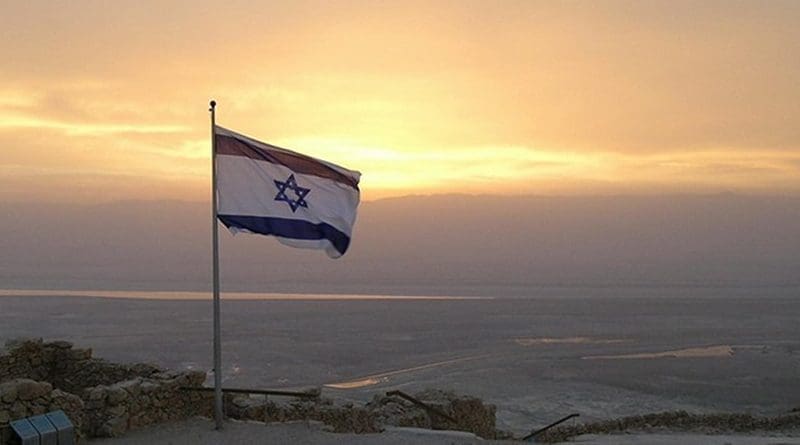Fatah, Hamas Cross Israel’s Redline – OpEd
After several years of bitter hostility and acrimony, the two rival Palestinian parties Fatah and Hamas eventually reached a landmark agreement on April 27 to establish a transitional government and hold free elections which can potentially transform the whole political equations of the Middle East.
The Egypt-brokered agreement which was first announced by the official Palestinian news agency WAFA and Egypt’s state-run news agency MENA actually means that Israel’s plots for isolating the popular movement of Hamas which has been ruling the Gaza Strip following the 2006 Palestinian legislative election will be foiled and the Palestinian nation will take a further step toward realizing its objectives and regaining its inalienable rights.
Following its victory in the 2006 elections, Hamas set forward a logically substantiated proposal for Israel and vowed to cease military operations against Tel Aviv provided that Israel accepts withdrawing from the occupied territories and freezing the settlement activities. In early February 2006, Hamas offered Israel a 10-year truce “in return for a complete Israeli withdrawal from the occupied Palestinian territories, the West Bank, Gaza Strip and East al-Quds (Jerusalem),” and the recognition of Palestinian rights including the right of refugees’ return; however, Israel which had never shown any sign of willingness to retreat from its expansionistic policies, refused to accept the offer and preferred to continue military battle with Hamas — a military battle which claimed the lives of thousands of innocent Gazans and devastated a remarkable part of infrastructure in the densely populated, beleaguered coastal enclave.
According to Qatar’s Aljazeera network, Hamas and Fatah which had been holding a set of secret talks over the past months finally solved their disagreements and their consultations “resulted in full understandings over all points of discussions, including setting up an interim agreement with specific tasks and to set a date for election.”
The unexpected agreement which took place following the dismissal of the brutal dictator of Egypt Hosni Mubarak, who was unquestionably an unpardonable complicit in the repression of the Palestinian nation during the past 30 years, astounded the White House and irritated the Zionist regime’s officials to a great extent.
Speaking at a press conference one day after the announcement of the reconciliation agreement between Hamas and Fatah, Israel’s Foreign Minister Avigdor Lieberman announced that the deal marked the “crossing of a red line” and would lead Hamas to have the chance to take over the Fatah-administered West Bank. According to the peace treaty between Hamas and Fatah, the Gazan prisoners held by the Palestinian Authority will be freed and this is what makes Lieberman and his friends in Tel Aviv excessively anxious and flabbergasted. He has claimed that the security of West Bank will be threatened with the emancipation of these prisoners.
The peace accord between Hamas and Fatah marks the beginning of a new era in the prospect of Israel-Egypt relations as well.
It’s widely believed that whoever rises to power as the new leader of the Egyptian people will be necessarily more friendly to Iran and more hostile to the Zionist regime, because the cessation of ties with the criminal state of Israel and establishing cordial diplomatic ties with independent Muslim nations such as Iran was one of the basic demands of the Egyptian nation which ousted their uncompromising dictator Mubarak after 30 years of tyranny and despotism.
Finding a solution to end the unnecessary and unproductive conflicts between the two political parties, which have the potential to salvage the Palestinian nation and fulfill their dreams of freedom and liberation from the occupation of the Zionist regime, was one of the breakthroughs of the new Egyptian government which is gradually assuming power as the official representative of the Egyptian nation in the international community.
Now, it’s quite gratifying that the two political rivals who were once at loggerheads as a result of the seditious conspiracies of the Zionist regime have become friends with each other and are moving towards solving the problems of the oppressed nation of Palestine.
According to a Reuters report, the Hamas government spokesman Taher al-Nono has confirmed the agreement and said that “all points of difference [between Hamas and Fatah] have been overcome.” Following the statements made by Mr. al-Nono, Israel’s FM warned PA and asked Mahmoud Abbas to choose “peace with Israel” instead of coming to terms with a Hamas-Fatah coalition.
Now, Israel is immensely apprehensive about its future in the Middle East. The officials in Tel Aviv are realizing that their security is seriously jeopardized with the ouster of US-backed puppets in the Arab world. With the removal of Mubarak from power as the Egyptian president, they cannot foresee a promising future for the agreements which they had reached with Egypt, including the 1978 Camp David Accords and the Egypt-Israel Peace Treaty of 1979.
According to an article written by Matthew Duss on the “Center for American Progress” website, thousands of young Palestinians who were inspired by the developments in Egypt and Tunisia “demonstrated across the West Bank and Gaza on March 15 in support of unity between Fatah and Hamas. Polling by Khalil Shikaki’s Palestinian Center for Survey and Policy Research reported overwhelming support (92 percent) among Palestinians for the reform efforts in Egypt and Tunisia, and majority support (51 percent) for ending the split between Fatah and Hamas.”
The Palestinian nation’s quest for statehood and their inclination for the settlement of conflicts between Fatah and Hamas indicate that a new era is beginning in the history of Palestinian people’s resistance against the occupying regime of Israel. With their promising agreement, Fatah and Hamas laid the groundwork for the establishment of a solidified independent Palestinian state foiled the treasonous plots of the Zionist regime and their mercenaries in the Arab world.
This article first appeared at Press TV and is reprinted with permission

